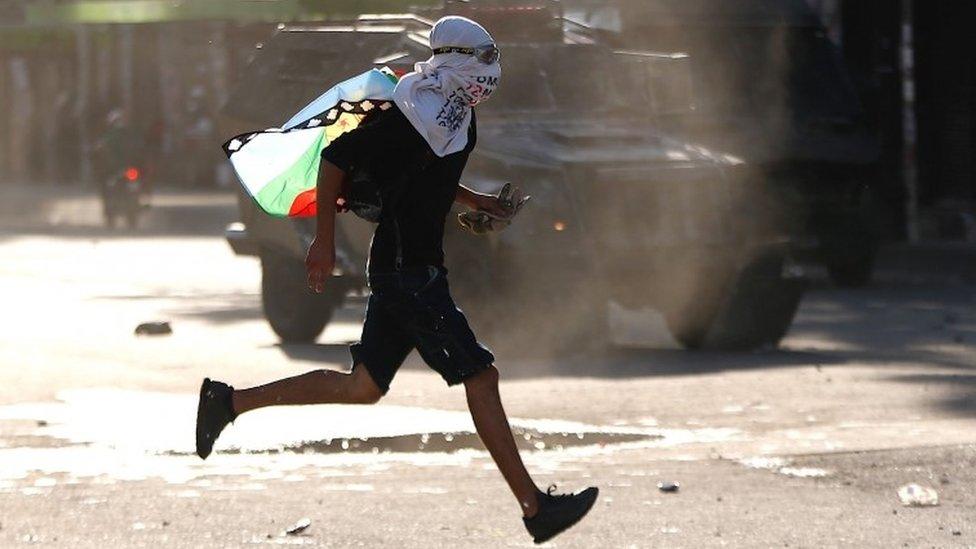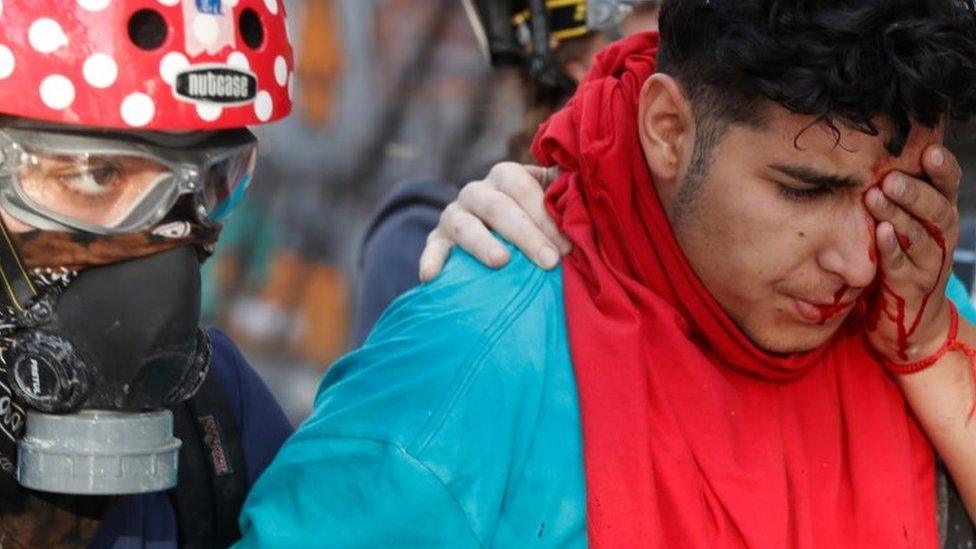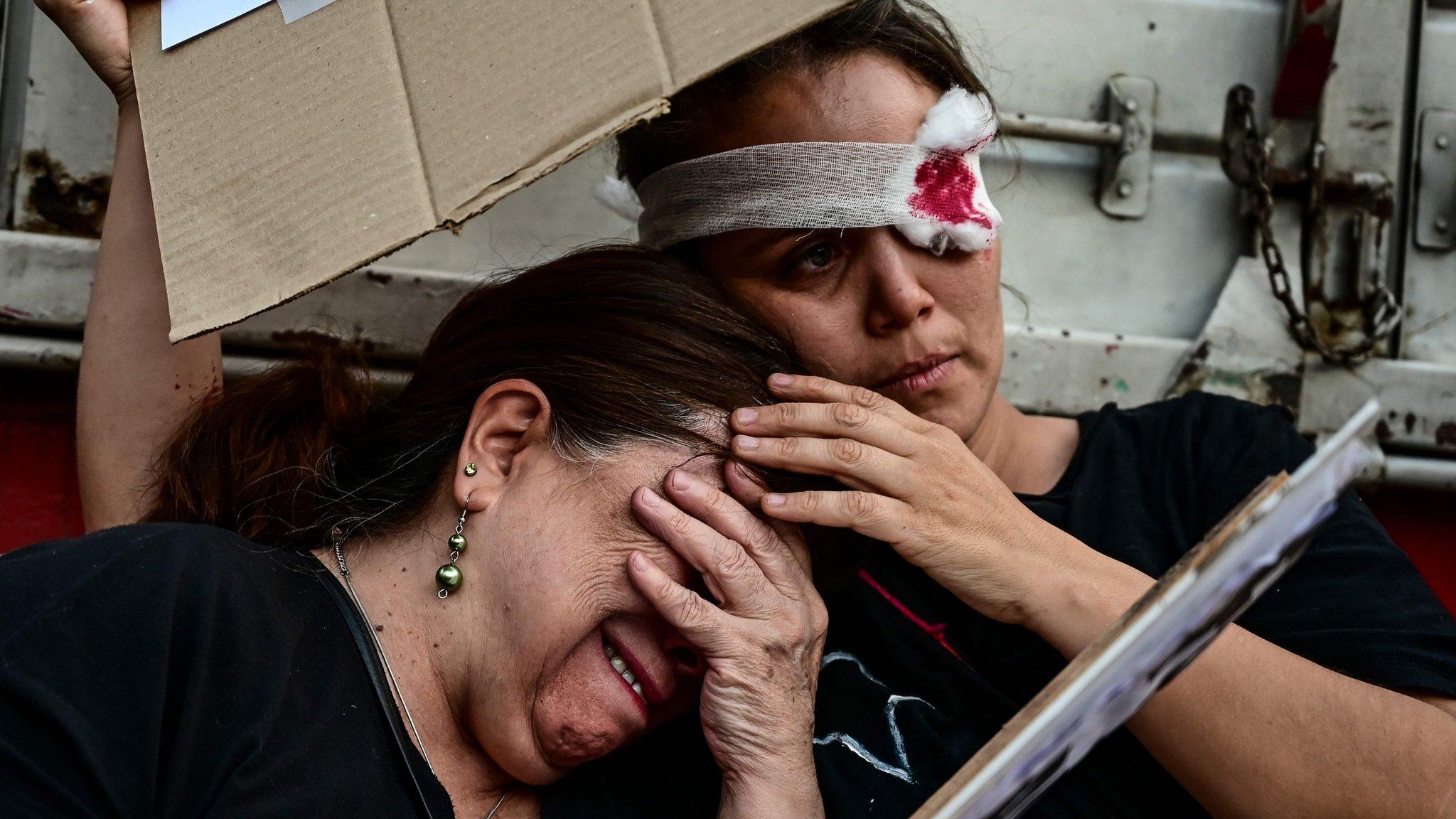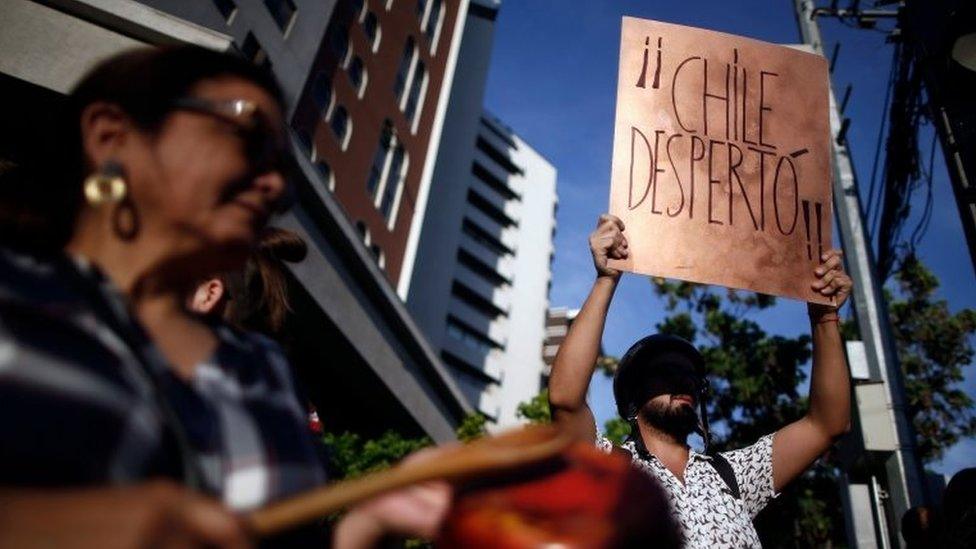Amnesty International: Chile using violence as a deterrent
- Published

Protesters are demanding widespread social reforms
Security forces in Chile have deliberately injured people taking part in the current mass demonstrations, Amnesty International says.
The rights group said the aim is to discourage further protests.
Excessive police force had led to the deaths of five people while thousands had been seriously injured, tortured or sexually abused, external, the report said.
They are not isolated acts, Erika Guevara-Rosas, Americas director at Amnesty International, told reporters.
"The intention of the Chilean security forces is clear: to injure demonstrators in order to discourage protest," she said in a statement.
Protesters are demanding social reforms and a change to the constitution which dates back to the pre-democracy era of the military leader, Augusto Pinochet.
The government has announced it will hold a referendum on the country's constitution.
Twenty-two people have been killed and more than 2,300 injured in the protests.
What does Amnesty say?
The security forces under the command of the president - mainly the army and the national police - are carrying out widespread attacks using unnecessary and excessive force with the intention of injuring and punishing protesters, the report states.
The deaths and injuries are a deliberate ploy to deter others from taking to the streets, it says.
"They are not isolated or sporadic events. It's not a few rotten apples within law enforcement. They are sustained attacks in different parts of the country," Ms Guevara-Rosas said.

More than 200 protesters have sustained eye injuries
It also condemns the number of severe eye injuries, including loss of vision.
There have been more than 270 documented cases of eye injuries from rubber bullets and tear gas cylinders with many victims alleging the security forces aimed at their eyes on purpose to try to blind them.
President Sebastián Piñera acknowledged that in some cases the security forces may have disregarded the proper rules of engagement for mass demonstrations.
What are the protests about?
The demonstrations started originally over a rise in the fare of the metro in the capital, Santiago, but quickly spread across the country and widened into more general protests against high levels of inequality, the high price of health care and poor funding for education.
Harsh repression by the security forces further stoked the anger of those protesting as did the response by President Piñera, who declared a state of emergency and said the country was "at war".
Women march in Chile, demanding justice for recent injuries and deaths of protesters
Mr Piñera has since struck a more conciliatory tone and on Sunday said: "If the people want it, we will move toward a new constitution, the first under democracy."
The current constitution, which came into force in 1980, is seen as a hangover from the time of military rule with its trust in neoliberal economics and Catholic values.
While there have been some amendments since 1980, many Chileans think they have not gone far enough to modernise the document. They demand that the state take a more active role in providing public healthcare and education.
Under an agreement between the government and opposition parties reached on Friday, a referendum will be held in April 2020 in which Chileans will be asked whether they want a new constitution and if so, how it should be drafted.
But the announcement of the planned referendum failed to quell the protests in Santiago, where demonstrators again gathered at Plaza Italia and small groups clashed with police.
- Published7 November 2019

- Published23 October 2019
